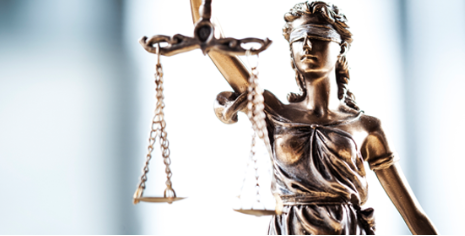What is a Fairness Challenge?
Fairness Challenge project is a national, research-backed practice of intentionally seeking the court users’ feedback on court’s services and measuring the public’s perception of the court’s procedural fairness.
- Gathering court user feedback is a key measure of court’s performance and is a recommended industry best practice in collecting data and improving court services.
- Public’s perception is influenced by personal experiences. Improving personal experiences will ultimately improve perception and confidence in the courts.
- Giving voice to court users helps build trust with the community members most impacted by the courts’ services.
What is Procedural Fairness and Why is it Important?
Fairness is one of the most fundamental elements of the courts.
Procedural Fairness refers to the perceived fairness of court proceedings. Members of our communities who encounter the court system form their perceptions of fairness from the proceedings, from the court’s environment, and from their personal experiences with how they are treated by the court personnel.
There are four pillars of Procedural Fairness:
- Voice: the individual’s ability to participate in the case by expressing their own viewpoint.
- Neutrality: individual’s perception of the court’s decisions being made without bias and with transparency.
- Respect: individual feeling of being treated with respect and consideration.
- Trust: individual’s belief that the court’s decision-makers are doing the right thing.
According to the national research led by National Center for State Courts, higher perceptions of procedural fairness lead to better acceptance of court decisions and a more positive view of the justice system as a whole.
Why is Fairness Challenge so important to District Court?
Protecting the fundamental matter of process fairness is one of the most important issues for Clark County District Court. However, it can be difficult to prioritize fairness efforts in tangible ways alongside other critical challenges that organizations face today.
By participating in the #FairnessChallenge project, our agency publicly commits to a transparent avenue that seeks to understand the barriers and other systemic difficulties that exist in our court system through giving voice to our court services’ users. Our ultimate goal is to improve the value of services we provide to the community, and to raise the public’s trust and confidence in the judiciary.
How Does This Work?
District Court will have iPad stands set up in District Court Administration and the Probation Services Division lobbies, as well as having QR codes posted around all District Court courtrooms and at our Community Restitution Center.
The surveys will run for two to four weeks at a time, and will each target a specific area of procedural fairness:
- Questions that identify the public’s perception of fairness – four weeks
- Questions that identify the public’s perception of respect – two weeks
- Questions that gage the public’s understanding of District Court processes – two weeks
- Questions that provide the public with the opportunity of being heard and identify the value of District Court’s services– two weeks
Each weekly question is designed with respect for the customers’ time and will only require a quick “thumbs up” or “thumbs down” response. Questions that measure the value of our services will allow for free-hand text input.
What Happens After the Surveys Get Completed?
Once the surveys close, the real work begins!
Firstly, the collected data will be posted on this page, to communicate the Court’s accountability and transparency to our court users.
Secondly, the data will be driving our improvement efforts. We will be measuring the effectiveness of these efforts by continually providing our users with opportunities for feedback.
Is There More?
Yes! In line with Clark County District Court’s continuous process improvement philosophy, we will be looking for ways to expand our survey opportunities to reach more users. We plan to utilize technology and innovative approach to improve access to justice and feedback opportunities for our Limited-English speaking communities, persons with various abilities, and underrepresented populations.
Your voice counts!
